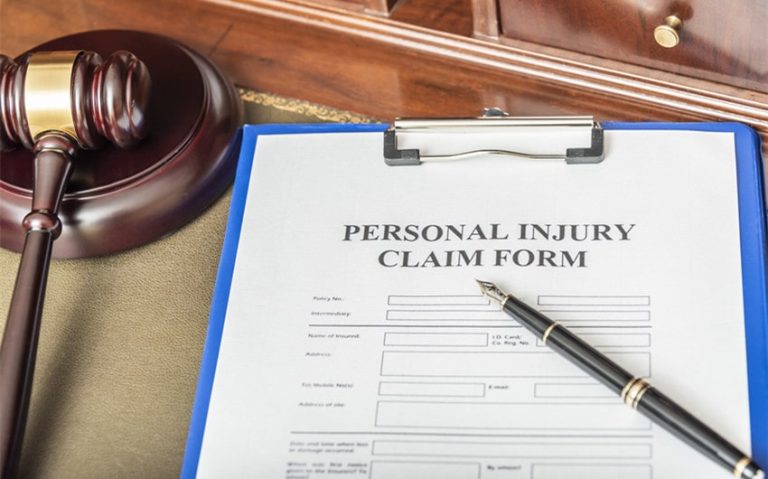When people think about personal injuries, their minds often jump straight to medical bills. While those expenses can be overwhelming, they’re just the tip of the iceberg.
The real financial and emotional toll of a personal injury extends far beyond hospital stays and doctor visits. It can impact your work, your relationships, and your overall quality of life in unexpected ways.
If you’ve recently been injured due to someone else’s negligence, it’s crucial to understand these hidden costs so you can protect yourself.
Let’s break them down.
Lost Income and Career Setbacks
Many people assume that if they get injured, they can simply take a little time off work and then return as if nothing happened.
Unfortunately, that’s not always the case.
Depending on how severe your injury is, you might have to take weeks – or even months – off work. And even if your employer allows you a lot of time to recover, you’ll still have to be absent for a long period.
Being absent from work for too long can mean lost promotions, missed networking opportunities, and even stalled career growth.
If you have a job where you’re doing physical work, an injury might even force you to switch to an entirely new or different profession.
What to do: Keep detailed records of the workdays you’ve missed and the pay you’ve lost. A personal injury attorney will help you receive appropriate compensation for lost income, including any future earnings that have been potentially affected by your injury.
Unexpected Medical Expenses (Beyond Hospital Bills)
Medical bills don’t stop when you leave the hospital. In fact, many injuries require long-term care, including:
- Physical therapy
- Chiropractic treatment
- Home modifications, like wheelchair ramps
- Prescription medications
- Follow-up surgeries
Some injuries even result in chronic pain conditions, requiring lifelong management. And these expenses add up quickly, especially if your insurance doesn’t cover everything.
What to do: Keep records of all medical treatments, including mileage for doctors’ appointments. Many people don’t realize that travel costs for medical care can also be compensated in a personal injury case.
Emotional and Psychological Toll
A personal injury doesn’t just affect your body. It can take a serious toll on your mental health, too.
Anxiety, depression, PTSD, and even mood swings are common after traumatic accidents.
After the accident, you have to live under the constant stress of medical treatments, financial concerns, and lifestyle adjustments. These events can weigh heavily on your mental well-being.
For example, someone who was once an active runner but can no longer exercise due to a leg injury might struggle with feelings of frustration, hopelessness, and even depression. Similarly, someone who was in a car accident may develop driving anxiety or start avoiding vehicles altogether.
What to do: Therapy and counseling are great for improving your mental and psychological well-being. The problem is that these sessions are often expensive.
If someone else’s negligence caused your injury, the cost of a therapist should also be factored into your claim. A legal expert can guide you on how to document and claim emotional distress damages.
Damage to Personal Relationships
One of the most overlooked consequences of a personal injury is its effect on personal relationships.
When you’re dealing with pain, financial stress, and emotional trauma all at once, it’s normal to feel like you can’t interact with your loved ones. It can be hard to maintain strong connections with friends and family.
Some injuries can also create tension between spouses, especially if one partner has to take on the role of a caregiver. Sometimes, friendships also suffer if you’re unable to participate in social activities or if your mood has changed due to the stress of your injury.
What to do: Even if everything feels too overwhelming, remember that there are people who care and worry about you. Take some time out to communicate with loved ones. It’s okay to ask for help and support.
If your injury has affected your ability to maintain relationships, this can sometimes be factored into non-economic damages in a personal injury claim.
Legal Costs and Insurance Battles
Many people assume that if they have insurance, they’ll be taken care of.
Unfortunately, insurance companies are in the business of making money, not giving it away. Like any other business, their primary goal is to earn a profit.
So, insurance companies may try to minimize your claim, delay payments, or even deny it outright.
Without proper legal guidance and awareness, victims often settle for much less than they deserve. That’s why having an attorney is so important.
An experienced lawyer can handle negotiations, gather additional evidence in your favor, and make sure you’re not taken advantage of by insurance companies.
What to do: Take time to do thorough research and find a reliable attorney. Some legal professionals take a small portion of the compensation you receive, while some may agree to be paid until after the case is won.
In any case, take your time and choose a reliable attorney, regardless of how much they cost.
Loss of Enjoyment of Life
Beyond the tangible financial costs, injuries can rob people of things that once brought them joy.
If you used to love hiking, playing sports, or traveling and can no longer do these, it may feel like you’ve lost a part of yourself. This is known as “loss of enjoyment of life,” and it’s a very real and valid claim in personal injury cases.
Due to the immense emotional toll you take after a traumatic accident and injury, it’s common to feel like nothing is enjoyable anymore. But that doesn’t make it okay.
What to do: Document how your life has changed. Keep a journal of activities you can no longer do or any ways your daily life has been impacted. An attorney will help you include these damages in your case.
Know Your Rights
A personal injury isn’t just medical bills. It can change every aspect of your life.
The hidden costs, from lost wages to emotional distress, can be overwhelming. That’s why it’s crucial to understand your rights and options thoroughly.
If you’re dealing with the aftermath of a personal injury, consulting an attorney will help you navigate these challenges and ensure that you’re fairly compensated – not just for today but for the long-term impact on your future.







